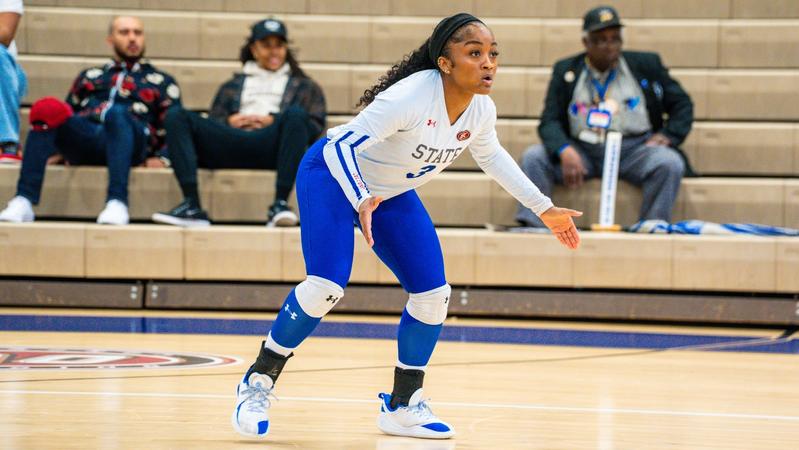NIL and the transfer portal have changed college football forever.
NIL
Details Emerging About Enforcement of the House Settlement


Last Updated on May 20, 2025
As college athletics prepares to transition into a new era post-House settlement, attention is turning toward how this new model will be enforced.
Three major details are taking shape: the creation of a centralized College Sports Commission (CSC) with sweeping oversight powers, establishment of Deloitte’s clearinghouse to review deals, and a contract circulated by power conferences aimed at binding their members to the terms of the settlement and NCAA rules—regardless of what state law might allow.
Here’s a breakdown of what we know so far and what it means for the future of college sports governance.
The NIL Clearinghouse Run by Deloitte
The House settlement introduces an NIL Clearinghouse operated by Deloitte called NIL Go, which will be owned by the new enforcement entity, CSC. This system is designed to evaluate third-party NIL deals valued at $600 or more, ensuring they reflect fair market value and serve a legitimate business purpose.
Under the new compliance framework, athletes will submit NIL deal information directly to their athletic department, which will designate a staff member —referred to as a “change champion”—to manage this process on campus and serve as the point person for facilitating NIL deal reviews and ensuring institutional compliance.
Schools must assess whether the payor qualifies as a booster, a collective, or a company with institutional ties. This classification hinges on several factors, including whether the entity was created to support the athletic department, has donated more than $50,000 to the school, or employs individuals with direct connections to the institution or its affiliates.
According to the settlement, only deals flagged as originating from boosters, collectives, or similar entities will be subject to this deeper review and valuation analysis through the Deloitte-run clearinghouse.
To make the “fair market value” determinations, Deloitte will be leveraging a database of thousands of past NIL deals involving both college and professional athletes to establish benchmarks. According to a three-page memo that’s been distributed to schools, Deloitte will use a 12-point analysis “assessing if compensation aligns with similarly situated individuals in comparable deals.” Factors listed in the memo include: “athletic performance, social media presence, local and institutional market size, and brand influence.”
Under the current plan, Deloitte is expected to review and render decisions on submitted NIL contracts within as little as one day. If a deal is rejected, the athlete will have the opportunity to revise and resubmit the deal to reflect Deloitte’s valuation.
If a deal is rejected a second time, it will be escalated to the CSC CEO and enforcement staff, and then funneled through a formal arbitration process overseen by the courts. Athletes will remain eligible while their case is under review, with arbitration decisions expected within 45 days. However, if an athlete loses arbitration and still accepts payment from a deal deemed out of bounds, they will be ruled ineligible.
Last week, at ACC spring meetings, Deloitte’s team shared data that 70% of past NIL deals from collectives would have been denied by their standards. Expect lawsuits as soon as Deloitte starts rejecting deals, which will force it to defend and reveal it’s “fair market value” formula.
Creation of the College Sports Commission
In order to enforce compliance with the revenue-sharing model, the clearinghouse decisions, and other elements of the House settlement, the NCAA and power conferences are establishing the CSC, a separate LLC that will be led by a to-be-hired CEO.
The CSC will have the authority to:
- Oversee and interpret the application of new rules developed as part of the House settlement structure
- Investigate violations of revenue-sharing rules and other agreed-upon settlement terms
- Levy penalties for non-compliance, which could include fines, suspensions, penalties and other sanctions (these have not yet been detailed)
Sources told ESPN that schools will be able to challenge any penalties through an arbitration process. A potential huge change, however, may be subpoena power during the discovery process. This is a key element that has been missing from NCAA investigations in the past.
The CSC will be independent from the NCAA enforcement staff and led by a CEO in an effort to lend more credibility and transparency to how the new system is policed. The intent is to avoid the inconsistency and slow enforcement processes that have plagued the NCAA in recent years. The NCAA will continue to handle enforcement around other rules like academics and eligibility.
A Contract Binding Schools to the New Enforcement Rules
The latest development is a contract that the power conferences—Big Ten, SEC, Big 12, ACC, and potentially others opting into the settlement—are asking their member institutions to sign. Ross Dellenger reports this contract is essentially a binding agreement that reinforces the terms of the settlement and NCAA rules, even in states where laws might allow schools to sidestep those regulations.
Here’s what’s reportedly included:
- Commitment to follow NCAA and conference rules, even when those rules are more restrictive than state laws.
- Enforceable penalties for institutions that break the rules, including financial penalties, loss of revenue-sharing eligibility, and even competitive sanctions.
- A formal dispute resolution process, meant to streamline internal enforcement and reduce the need for litigation between schools and conferences.
The goal of the contract is clear: prevent a patchwork of compliance standards that could arise in states with more permissive laws for NIL and revenue sharing. Without a unifying agreement, schools in restrictive states could find themselves at a competitive disadvantage compared to schools in states that allow more direct compensation or looser NIL arrangements.
Dellenger reports schools who refuse to sign are risking loss of their conference membership and ability to compete against other power conference programs. However, questions remain about the legality of signing a document that asks you to not follow your state law, as those laws override private agreements. Tennessee’s new law, for example, prohibits the adoption of rules that violate state law and prohibit punishment that would impact a school’s membership status or revenue distribution.
As with everything surrounding the House settlement, the answers are still unfolding around all three of these new mechanisms.
NIL
Ole Miss’ Chambliss: ‘A little frustrated’ NCAA yet to rule
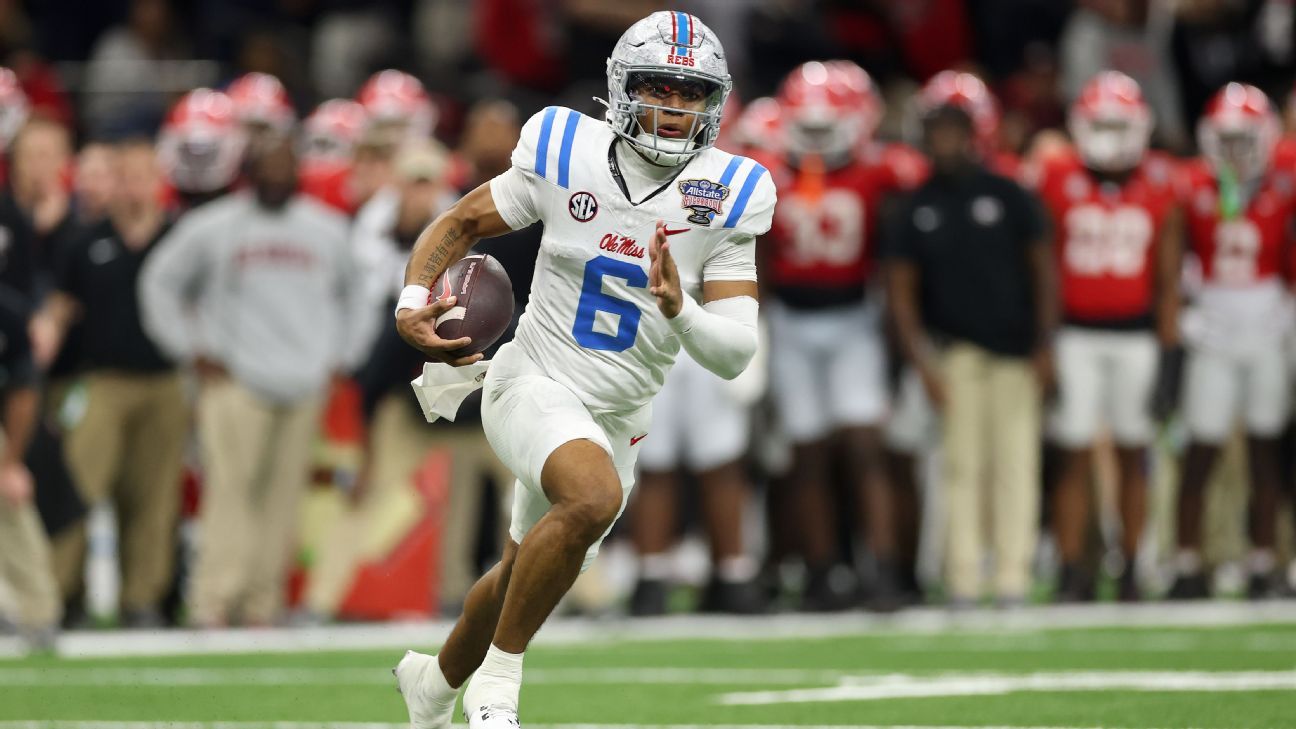
SCOTTSDALE, Ariz. — Quarterback Trinidad Chambliss already agreed to a deal to return to Ole Miss next season. Now, he has to wait to see if he’ll be eligible to play.
Chambliss, one of the breakout college football stars of 2026, filed a medical redshirt waiver for a sixth year of eligibility on Nov. 16. He has yet to receive a definitive answer from the NCAA, although it gave a verbal denial for the waiver in December.
“It has been a little frustrating,” Chambliss told ESPN on Tuesday ahead of the Rebels’ College Football Playoff semifinal Thursday against Miami. “But I can’t let that overtake what my mindset is right now and that’s to win a football game and beat Miami. So I would say I’m a little frustrated, but I can’t let that take over me.”
Chambliss is coming off one of the season’s defining performances in one of its wilder games, as he threw for 362 yards in a 39-34 quarterfinal win over Georgia, which included 20 fourth-quarter points for the Rebels. If he were to return next season, he’d be set to earn millions of dollars, something he didn’t get when he left Division II Ferris State for Ole Miss last year. Entering the season, he was slated to back up Austin Simmons.
Chambliss’ lawyer, Tom Mars, mentioned in a letter to the NCAA on the quarterback’s behalf that his client would “suffer irreparable harm” if he’s not granted the waiver. The crux of Chambliss’ case is that he’s asking for a medical redshirt year from his sophomore season at Ferris State. He supplied 91 pages of medical documents that showed he was battling a respiratory issue and hired Mars to help his case. The NCAA is seeking contemporaneous notes that detail his care.
Mars expressed his frustration with the pace of the case to ESPN on Tuesday night.
“It’s been more than seven weeks since Ole Miss provided the NCAA with all the information they needed to make a decision,” he said. “If the NCAA believes its bylaws clearly required more than what was provided, or that the information wasn’t sufficient to justify a waiver, one has to wonder why they still haven’t made a decision.”
Mars said that he and other lawyers have been working for the past week on immediate contingency plans in the event the waiver is denied.
When asked by ESPN how he’d plead his case to the NCAA, Chambliss responded: “I would just say we have evidence and we have an actual reasoning. There’s some kids that don’t have a reasoning on why they should get another year. And I mean, I have an actual case.
“It’s legit, and I hope that they can find whatever in their hearts or in their minds that they can see that and see that I’m a great guy. I’m all for college football and I feel like this year has proven that I’m good for college football and I think that I should deserve another year.”
Chambliss also reflected on what the money in the contract he agreed to with Ole Miss would mean to him and his family.
“It would mean a lot,” he said. “Not everything is about money, but that sure does help. And for me to be in the position that I’m right now, all the hard work and sacrifice that I put in to get to where I am right now, I feel like I’ve earned that. And I feel like with the waiver being approved, I’ve earned the right to have the success or whatever comes with it. And that if it’s NIL or any other things, then so be it.”
Chambliss’ public commitment to return to Ole Miss for 2026 provided another mile marker of momentum. This all came a few weeks after the school appeared fragile in the wake of Lane Kiffin’s departure to LSU.
But two CFP wins and a flurry of returners such as Chambliss, star tailback Kewan Lacy and a handful of star defensive players have fortified Ole Miss for the future.
“We’re committed to him and I’ll leave that to the legal people, who have kind of looked into the case, and whether or not it has legs,” Ole Miss quarterback coach Joe Judge said. “And obviously they felt very strongly about it. So when they told us like, ‘Hey, this is something that absolutely should be ruled in his favor.’ Then we said, ‘Let’s be committed to our player and back him up.'”
NIL
Auburn lands its QB as USF star Byrum Brown commits via transfer portal
Updated Jan. 6, 2026, 12:36 p.m. ET
One of the top quarterbacks in the transfer portal is now off the board — and headed to an expected destination.
Former South Florida quarterback Byrum Brown has committed to Auburn, he announced on Tuesday, Jan. 6.
With his move, Brown follows new Tigers coach Alex Golesh from South Florida, where the two teamed up last season to engineer one of college football’s most explosive and productive offenses.
According to ESPN, Brown signed a deal that “projects as one of the most lucrative in the NIL era.”
Given his recent track record, it’s easy to understand why.
While helping guide the Bulls to a 9-3 record in the regular season, Brown threw for 3,158 yards, 28 touchdowns and seven interceptions while adding 1,008 rushing yards and 14 touchdowns. His 347.2 total yards per game ranked first among all FBS players, right ahead of Heisman Trophy runner-up Diego Pavia.
South Florida’s nine wins last season were the program’s most in eight years, helping Golesh earn the opportunity at Auburn after a strong three-year run with the Bulls in which his teams went 23-15.
The 6-3, 232-pound Brown was South Florida’s starter each of the past three seasons, though a lower leg injury in 2024 limited him to five games. As a sophomore in 2023, he threw for 3,292 yards and 26 touchdowns while rushing for another 809 yards and 11 scores.
At Auburn, he’ll step into the starting role at a program that has been in desperate need for a difference-maker at quarterback for years.
Despite having offensive-minded head coaches throughout that stretch, the Tigers haven’t finished higher than 68th among FBS teams in scoring offense since 2019. Last season, they averaged just 26.8 points per game, the 74th-best mark of 136 FBS teams. Those struggles negated what was a largely stout defense, one that finished 35th in the FBS in points allowed per game.
NIL
How NIL is playing role in Tennessee’s swim and dive program – The Daily Beacon

When Tennessee swim and dive graduate Griffin Hadley arrived at the University of Tennessee, he entered a college athletics landscape that was already in flux.
The NCAA had just passed its name, image, and likeness (NIL) policy, allowing college athletes to make money from their brand. Swimmers were just trying to make sense of these changes.
Now, four years later, Hadley has graduated, but the chaos of NIL remains, and the UT swim team in particular tries to adjust to a new series of changes stemming from the House v. NCAA settlement.
This lawsuit allows schools like Tennessee, which opt into the deal, to start paying athletes a piece of the school’s athletic department revenue. The House v. NCAA also enforces a roster cap, which limited swimming and diving to only 30 athletes, with the SEC now proposing to lower caps even further, dropping the men’s cap down to 22.
These changes bring great concern for Hadley, who worries this will only create a divide between Olympic sports and the sports that are deemed to be ‘revenue-generating.’
“As far as Olympic sports go, Olympic sports are gonna start fighting for their life,” Hadley said.
With the new era of NIL and revenue sharing, UT swimming and diving is a unique place as a high-performing team at an ‘Everything School,’ but a non-revenue-generating Olympic sport in the era of the House settlement. Hadley, fellow graduate and 2024 Olympian Jordan Crooks, and former swim and dive strategic information director Josh Lively believe in the future of this team, but recognize that the financial realities of college athletics pose new challenges for programs like this.
Revenue sharing at Tennessee
The House settlement allows UT to allocate up to 18.5% of the school’s athletic revenue to athletes. Tennessee has chosen to divide this money, a total of $215,469,808, across all 16 NCAA-sanctioned sports.
During an October press conference, Tennessee’s Athletic Director Danny White shared the specifics of this revenue-share split. The football team receives 75% of the share, men’s basketball receives 15%, women’s basketball receives 5% and the last 5% is left to “other.”
The other comes out to about $900,000, he noted.
Based on those percentages and budget reports, during the 2024-2025 season, the football team received $162,539,638 in revenue, men’s basketball received $35,316,920, and women’s basketball received $4,352,348, according to Tennessee athletic public records. Swim and dive earned a percentage of the 5% left, which came out to $370,687 for the combined teams.
![]()
White said that these numbers are “consistent with the House settlement.”
While swimming & diving’s numbers remain low, despite both the men’s and women’s teams finishing top-five nationally in both of the last two seasons, Lively is still impressed that White allocated any money to swimming and diving. Opting to rev share with those programs, Lively said, emphasizes White’s commitment to the ‘Everything School’ tagline at Tennessee.
“Danny specifically has been all in on day one of ‘We’re gonna be an everything school. We’re gonna try to give everyone a piece of the pie when it comes to rev share,’” Lively said. “And he has never wavered from that.”
UT sports studies professor and NIL expert Dr. Adam Love said Olympic sports like swimming have always faced an uphill battle for equitable funding and support, even on campuses like Tennessee’s, where swimming and diving are still getting some portion of the revenue-sharing pie.
“There are certainly inequities that exist when it comes to NIL rights,” Love said. “But to emphasize, those are also long-running inequities where there is a long struggle for Olympic sports seeking to carve out a little bit more of the pie.”
One way athletes bring in revenue is through storytelling, both at the individual and team level. But on an SEC campus largely dominated by football, capturing audience attention can be challenging.
Lively’s job was to help sell a story of the swimming and diving team that inspired audience care. He wrote press releases for the program, managed media requests and ran the team’s social media account.
While his job now falls to Bryant Avery, these athletes have also taken it upon themselves to tell their own stories through social media in an effort to spread the word about the team’s success and generate individual side income through brand deals and social media advertising. UT even links to athletes’ Instagram accounts on the official school roster as a way to drive more traffic to those athletes’ profiles.
JB Bowling, Tennessee’s chief NIL officer, said that UT is committed to helping athletes capitalize on their experience as student-athletes at Tennessee in the NIL era.
“The ability to leverage their hard work to build a personal brand and potentially earn money is a tremendous advantage for students at schools like the University of Tennessee,” Bowling said in an email. “The benefits of NIL agreements go beyond immediate financial gains; they also include valuable connections with companies and brands that can lead to further opportunities after their athletic careers.”
Gui Caribe leads the men’s team in followers with 44.5K, while Mizuki Hirai leads the women’s team with 8,949 followers as of Nov. 17, 2025. Their content serves as an additional marketing arm for themselves and their program.
![]()
“It’s hard to showcase people multiple times, let alone consistently enough to be like ‘OK, let me help you build your brand up,’” Lively said.
Olympian Crooks would be one of the most obvious social media and NIL stars amongst the team, but Crooks says he, like Hadley, doesn’t have a ton of interest in social media or NIL. He finds it overwhelming, especially given everything else that he has going on as a student-athlete.
“It was just very confusing to me, and I wanted to just focus on my sport and be able to have a great four years in that aspect,” Crooks said. “I just didn’t really understand it, so I left it alone.”
Crooks finished his career at UT as a four-time NCAA champion, two-time SEC Swimmer of the Year and an 11-time conference champion. He credits some of his success to the fact that he chose not to have the distraction of NIL. Instead, Crooks focused solely on his sport and his studies while being on scholarship.
That was enough for him.
Investing in building a personal brand in the NIL is extra labor that some athletes choose to engage with, according to Love, but others like Crooks recognize that they aren’t interested in allocating time to such efforts.
“When I talk to people that have those kinds of followings, they often talk about how it takes a lot of time and effort to build that kind of brand and then develop content that’s gonna keep a large group of followers engaged,” Love said. “So certainly some people have benefited tremendously financially at least from being able to profit from NIL, but of course it’s also given rise to other conflicts, other complications both for student athletes and for athletic departments to deal with.”
These complications could include time management strains, interpersonal conflicts with teammates over brand deals and revenue, or other financial and personal stressors, situations that Crooks chose to avoid, despite the potential to generate revenue from his brand by pursuing such opportunities.
Future
During Hadley and Crooks’ careers, the men’s swim team progressed from an 18th-place finish to three top-10 finishes nationally. Meanwhile, the women’s team placed inside the top 10 all four years, climbing as high as No. 4
While Crooks and Hadley appreciate the investment UT has made into swimming and diving as part of its commitment to an “Everything School,” they still worry about the potential implications of this changing landscape on the future of the sport.
Bowling is more reassuring.
“NIL will always be a part of the landscape, but I don’t believe it will be the primary factor shaping the future of Olympic sports,” Bowling said. “Providing resources and creating opportunities will be crucial, and we will work to maximize those opportunities for our sports. However, we believe that a significant aspect of the future of our sports will continue to be the overall support we offer and the excellence of our coaches.”
Swimming and diving is objectively part of UT’s future in the House settlement plan, and 21st-year swimming and diving head coach Matt Kredich does have $370,687 in revenue sharing to play with on the recruiting trail and within his team.
Kredich is leading a stronger team, athletically and financially, than he ever has before, but Hadley knows as well as any Vol that so much can change in the college landscape in four years.
“This is the modern day of college athletics, and non-revenue and Olympic sports have to respond. It’s up to us,” Hadley said.
NIL
NIL and portal changes were needed, but college football needs balance

This is the most beautiful, horrific confluence of events in history and no one can correctly predict where this thing is going. From the outside, there is a train-wreck feel to what we’re witnessing. It’s going to hell and there’s a rush order on hand baskets.
Article continues below this ad
Players deserved to get their piece of the pie, but the sport is losing its way and there is no quick fix though a college football commissioner — Mack Brown, perhaps? — is sorely needed.
MORE CED: Arch Manning is on a collision course with super stardom
The portal doors opened Friday and later that day, there were upward of 4,500 players filing into college football’s version of a gas station selling Powerball Quick Picks. That’s roughly one third of all FBS players.

Texas Longhorns head coach Steve Sarkisian looks into the crowd after the loss to Florida at Ben Hill Griffin Stadium on Saturday, Oct. 4, 2025 in Gainesville, Florida.
Aaron E. Martinez/Austin American-StatesmanWhen did so many players become disgruntled? Actually, some of them were quite content at their schools until something or someone convinced them they could improve their bottom line.
Article continues below this ad

Texas Longhorns head coach Steve Sarkisian looks at the scoreboard in the fourth quarter of the Longhorns’ game against the Arkansas Razorbacks at Darrell K Royal Texas Memorial Stadium in Austin, Nov. 22, 2025.
Then they heard the “P” word. And off they went.
Of course, many proven performers from big programs — players like ex-Auburn wideout Cam Coleman — are going to land somewhere for some fat coin, but there are countless others who will be back in their hometown trying to figure out how to talk their former head coach into taking them back.
Article continues below this ad
MORE HORNS: Texas nabs Michigan State tight end
Let’s be honest. There’s no way all 4,500 will be on somebody else’s sideline this fall. Although the sport has taken on the look of a haphazard version of the NFL — a real pro league with a real organizational plan and more than 100 years of pretty solid business practices with billions in profits — the NCAA is strictly amateur hour when it comes to its most valuable asset: the players.
Meanwhile, high school stars are playing second fiddle to grown men who are in the portal with college tape to their advantage. A player like incoming Texas running back Derrek Cooper, a four-star standout from Florida, will sign a lucrative deal, but head coach Steve Sarkisian will also have to navigate how much time he wants to devote to bringing in freshmen as opposed to a proven upperclassmen at a higher price in many cases.
Sign up for Ced’s Corner
Sign up for Cedric Golden’s newsletter for hot takes and expert analysis each Tuesday on Texas Longhorns football and beyond. It’s called Ced’s Corner, from the mind of the American-Statesman’s resident sports columnist.
Article continues below this ad
Sarkisian lamented how the recruiting game has changed in the years since the portal and NIL became the new way of doing business.
“That’s the reality of the situation of college football right now, and that’s where we are,” he said the day before the Longhorns’ Citrus Bowl win over Michigan. “I think there’s nothing wrong with that. We just got to tighten it up, and hopefully we can get there sooner rather than later. I’m probably going to be on the phone with an agent (later) that’s going to throw a number at me that I’m going to be like, ‘Good luck. I hope you get it. If you don’t, call us back. But I can’t do that.’”

Texas Longhorns head coach Steve Sarkisian celebrates with his team after beating Texas A&M Aggies 27-17 during the first half of an NCAA college football game in the Lone Star Showdown in Austin, Texas, Friday, Nov. 28, 2025.
Ricardo B. Brazziell/Austin American-StatesmanWhy are so many players transferring?
The annual mass exodus every year bears no explanation. Vegas mob boss Nicky Santoro put it best minutes before he got whacked at the end of “Casino:” The dollars.
Article continues below this ad
I’ve been a player’s advocate for as long as I can remember and it makes me smile to know there are young men from humble backgrounds who are able to help their families with the bills while also receiving an education.
MORE CED: Will Muschamp was a nice hire but the Horns have bigger issues
These athletes have always deserved to get paid beyond their scholarship, but the NCAA cowered in a corner when it could have put some sort of universal guardrail in place that’s better than the salary cap, but that’s not easily enforceable among 136 separate programs. Sure, no one batted any eye over the last 40 years while coaches and athletic directors pocketed millions as the major conferences, ESPN and Fox earned billions on the backs of athletes who filled stadiums as actual amateur performers.
Once players were given the opportunity to transfer and take advantage of their name, image and likeness, the proverbial floodgates opened. The current situation has become unsustainable. That light at the end of the tunnel is an oncoming train with no brakes.
Article continues below this ad
It brought to mind Northern Illinois coach Thomas Hammock’s comments in August when he was asked about the portal. The Huskies play in the Mid-American Conference, aka the MAC, and Hammock addressed losing 19 players from an 8-5 team that made national headlines by upsetting eventual national runner-up Notre Dame in Week 2 of the 2024 campaign.
Hammock played running back at NIU from 1999 to 2002 before carving out a successful coaching career, including five years mentoring running backs for the NFL’s Baltimore Ravens. He spoke of how his experience in DeKalb helped prepare him for life after his playing days and how everything has flipped as the chase for dollars intensified from coast to coast.
MORE HORNS: Final grades for Texas football
“In life, you’re going to make decisions,” Hammock told reporters in August. “Sometimes, it’s going to work in your favor. Sometimes, it’s not. I told our team the other day, ‘We lost all these guys. Let’s see who plays. It’s all good when people put on Twitter ‘All glory to God, I’m going in the transfer portal.’ Let’s see if they play. How many of them guys are going to play or travel or get snaps?”
Article continues below this ad
It’s today’s game. Everyone has players and if there is a chance to leave a smaller program for a lucrative offer from a football factory, who can blame them?
Here’s the problem: Some of those athletes are receiving flimsy advice. They’re taking on the role of the dog from the old Aesop fable who was crossing a bridge with a bone in his mouth only to see another dog staring up at him — actually his own reflection from the water — with what appears to be a larger bone between his jaws. He dives for the bigger bone, and the pup ends up with nothing.

Texas Longhorns receiver Parker Livingstone (13) makes a catch during the game against Florida at Ben Hill Griffin Stadium on Saturday, Oct. 4, 2025 in Gainesville, Florida.
MORE HORNS:Sean Miller wants more toughness
Article continues below this ad
In some cases, it’s a gamble to leave a good situation. Texas wideout Parker Livingstone — quarterback Arch Manning’s roommate — announced last week on social media he was entering the portal and during his lengthy post, he added a line that sparked conversations everywhere.
“Never in a million years did I think I would be going into the portal looking for a new home,” Livingstone wrote. “Some things are out of my control. Such is the reality of the ever-changing landscape of college football.”
Was he saying the Horns fired him?
Did Livingstone leave because he asked for more money and didn’t get it? Was he told his current salary was being earmarked for another player?
Article continues below this ad
Livingstone committed to Oklahoma Tuesday for $800,000 which is double what he made at Texas, according to a report from the Houston Chronicle’s Kirk Bohls. Either way, it was a rather cryptic post since it’s common knowledge the Horns are pursuing the more electric Coleman, who was second among SEC sophomores with 56 catches and third in catches of 30-plus yards with six. Coleman reportedly visited the UT campus Saturday.
Decades before the portal era, players were pushed out of programs, but that may not be the case with Livingstone. Only the player and the employer — that’s right, employer — know.
The current model is doomed for failure. The sport is feeding on itself and while programs like Texas, Ohio State, Michigan and Notre Dame can survive because of collectives and massive bankrolls, the smaller schools will soon be faced with having to cut costs to keep up, which means the possible loss of nonrevenue producing sports.
Article continues below this ad
Coach Prime on portal dangers
Deion Sanders has the unique position of being a head coach and the father of a former college player — Cleveland Browns quarterback Shedeur Sanders — who profited off NIL. Deion Sanders, speaking on a recent Barstool Sports podcast, said the thirst for money is problematic because priorities are being misplaced.
“They want to go chase the bag instead of chase the game,” Sanders said. Chase “the game. The game’s got the bag. Don’t chase the bag.”
Then, later, “You’re chasing NIL instead of NFL and that’s not the right thing. I’ve never chased money in my life. I chased greatness and guess what came with greatness? The money.”
Article continues below this ad
MORE HORNS: Texas women’s star Jordan Lee on 3-point play
Somewhere along the way, the college experience has taken a back seat to a dream lifestyle before adulthood. It’s good, legally obtained money, but it’s fast money and young people whose brains aren’t fully developed aren’t always equipped to handle the speed of this particular game.

Colorado Buffaloes coach Deion Sanders, right, and his son Shedeur Sanders had to wait until Saturday’s fifth round before the Cleveland Browns drafted the quarterback.
Kirby Lee/Imagn ImagesHammock has sage advice for whoever will listen.
Article continues below this ad
“Learn the lessons that you need to learn to be successful in life for the next 40 or 50 years of your life,” he said. “I would do it again for free because of the things I learned. That’s why I’m standing here today, because of what I learned in college. Not because of how much someone gave me.”
The portal closes Jan. 16, but the teams playing in the national championship game will get an extra four days to do some last-minute shopping. Until then, some players will emerge with bigger bags while others will spend several hours over these next few weeks watching a cellphone that doesn’t ring.
They will sheepishly declare for the NFL draft because what else is there if no college team wants them? A few will sign free-agent deals, but won’t make it through two weeks of an NFL training camp before the Turk comes calling saying, “Coach needs to see you and don’t forget to bring your playbook.”
Article continues below this ad
That first college locker never looked better.
NIL
$2.6 million college football QB predicted to join disappointing NFL team
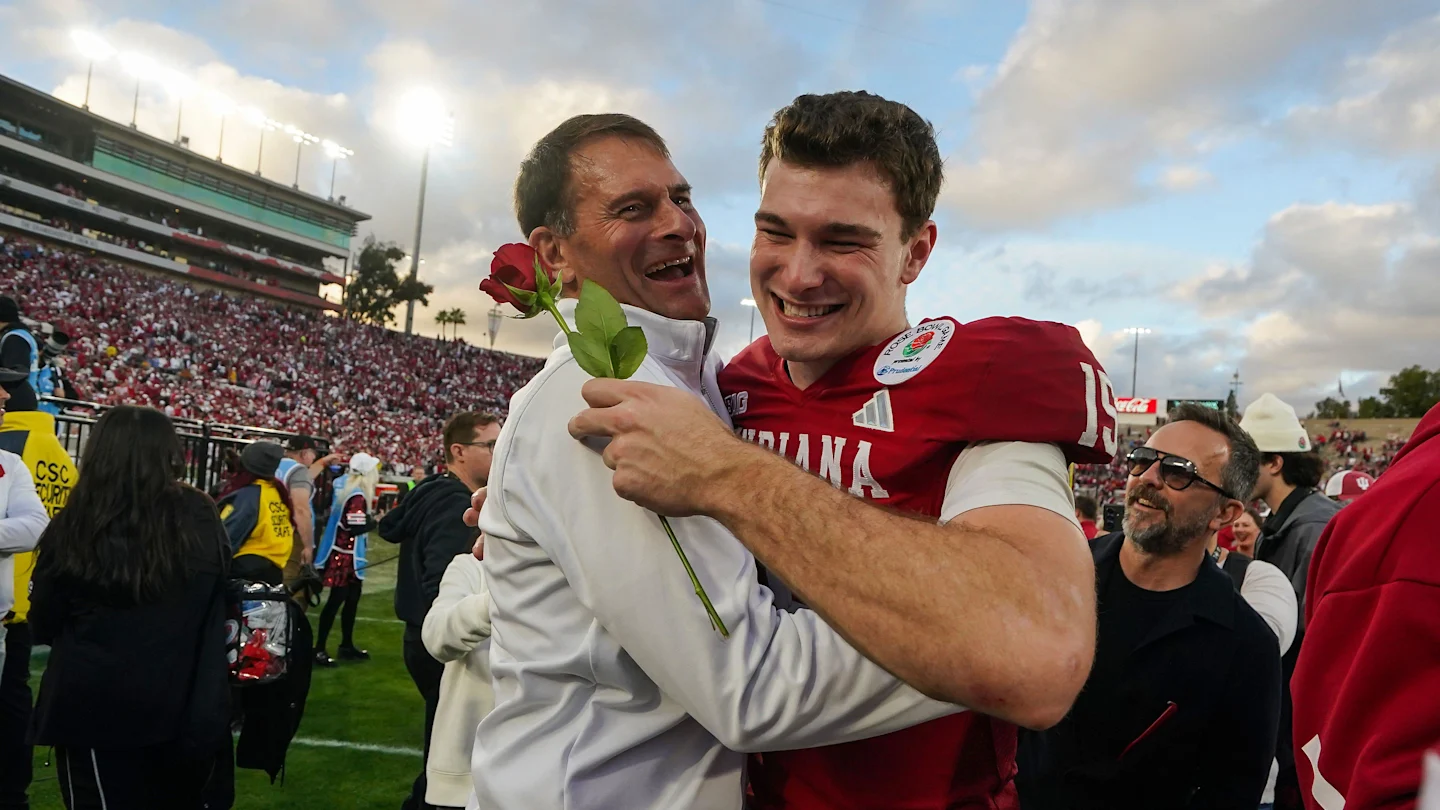
The 2025 College Football Playoff has reached its semifinal round. No. 10 Miami (12-2, 6-2) will face No. 6 Ole Miss (13-1, 7-1) in the Vrbo Fiesta Bowl in Phoenix on Thursday to open the semifinals (7:30 p.m. EST, ESPN).
The second of the two semifinal games is between No. 5 Oregon (13-1, 8-1) and No. 5 Indiana (14-0, 9-0) on Friday in the Chick-fil-A Peach Bowl in Atlanta (7:30 p.m. EST, ESPN). It is a rematch for the Ducks and Hoosiers, as Indiana prevailed 30-20 at Autzen Stadium on Oct. 11, 2025.
One of the most intriguing elements of the rematch involves the battle between the two quarterbacks. Of course, 2025 Heisman Trophy winner Fernando Mendoza is one-half of the battle.
The 6-foot-5, 225-pounder originally suited up for Justin Wilcox at California in 2022 to begin his college career. 2023 was the first time the Golden Bears featured Mendoza in their offense. He passed for 1,708 yards, 14 touchdowns and 10 interceptions and rushed for 86 yards and two touchdowns in nine games.
Mendoza started all but one regular-season game at California in 2024. He threw for 3,004 yards, 16 touchdowns and six interceptions and ran for another 105 yards and two touchdowns. He transferred to Indiana the following offseason.

Through 14 games with Indiana, Mendoza has passed for 3,172 yards, 36 touchdowns and six interceptions while rushing for 256 yards and six touchdowns.
In addition to the Heisman Trophy, he has received the Maxwell Award, Davey O’Brien Award, Associated Press Player of the Year, Big Ten Offensive Player of the Year and All-Big Ten First Team distinction.
All of these accomplishments in such a short period of time have piqued the interest of franchises at the top of the 2026 NFL draft who are in need of a new starting quarterback. Mendoza is considered the best quarterback in the 2026 NFL draft class, and the Las Vegas Raiders are drafting No. 1 overall and are in need.
Mike Renner of CBS Sports recently linked Mendoza to the Raiders in a projection for the 2026 NFL draft.
“This guy lives in the playbook. You watch the interviews, you watch him talk about the game of football, you see one of the most cerebral minds coming out of the draft in recent memory,” Renner said. “This guy lives it, he loves it. I think if Tom Brady gets this guy in a room, he’s going to fall in love with how much Fernando Mendoza loves the game of football.”
If the Raiders do in fact select Mendoza, he will be the first quarterback selected in the first round of the NFL draft by the Raiders since they selected JaMarcus Russell in 2007. The last multi-year starter the Raiders selected was Derek Carr in 2014, but he was selected No. 36 overall in the second round.
NIL
Washington has ‘no intention’ to release QB who signed but plans to enter portal anyway

By Sam Jane, Chris Vannini, Bruce Feldman and Ralph D. Russo
Just days after Demond Williams Jr. signed a contract with Washington to return to Seattle for his junior season, the quarterback reversed course and announced Tuesday night he would enter the transfer portal.
The shocking decision sends ripples through the Washington program and the college football transfer portal. Williams had signed a contract agreeing to return to the Huskies, a Washington source close to the negotiations told The Athletic on Tuesday night. Yet, Williams said on Instagram that transferring was “best for me and my future.”
Washington has no intention of releasing Williams from the contract he signed on Jan. 2, a program source told The Athletic. The dispute could lead to a messy debate over the circumstances surrounding Williams’ status.
Williams, however, had not filed any paperwork with Washington compliance officers to have his name entered into the portal before making his announcement on social media.
As of now, nothing has been submitted.
Washington is prepared to pursue legal action to enforce the terms of the contract, according to a person briefed on the situation.
There have been several recent examples of schools taking issue with player transfers. After cornerback Xavier Lucas transferred from Wisconsin to Miami, Wisconsin said Lucas had entered into a “binding two-year NIL agreement” that included “substantial financial compensation” and allegedly attempted to prevent him from transferring. Georgia’s athletic department is also seeking $390,000 from former defensive end Damon Wilson II, claiming his transfer to Missouri terminated his name, image and likeness agreement with the Bulldogs’ collective.
Williams and Washington head coach Jedd Fisch share the same agent at Wasserman football.
Williams followed Fisch to Seattle two years ago after committing to Arizona out of high school. However, before signing with Fisch at Arizona, Williams initially committed to Ole Miss and Lane Kiffin in late 2022. He de-committed the following summer. Williams started the 2025 season, with Fisch not holding back the hype for his quarterback entering the season.
“I would probably say, at this age, not even 19, he’s the best player I’ve ever been around,” Fisch said on the Until Saturday podcast last spring. “… My goal from when I started recruiting him in high school, and I told him this, we’re going to partner up and find a way to be in New York City when it’s time for the Heisman.”
Williams threw for 4,009 yards and 33 touchdowns against nine interceptions while adding 893 rushing yards and eight rushing touchdowns in 26 career games at Washington. In his first season as the starter, he passed for 3,065 yards and 25 touchdowns, earning All–Big Ten honorable mention honors.
After a four-touchdown performance in Washington’s blowout win over Boise State in the Bucked Up LA Bowl, Williams seemed poised to be one of the top quarterbacks in the Big Ten this year.
“He does have incredible potential,” Fisch said. “He’s not loud, but I would say he is vocal. He speaks softly and carries a big stick. He’s not going to yell or scream and do all those things that you necessarily would need him to do, but he leads by example. He works his tail off. He never misses anything. He’s constantly involved with the team. He knows when to take the right reps. He knows when to jump in, jump out. So all that being equal, I think his leadership skills are certainly good enough.”
Now Williams says he is moving on. Williams is entering the portal with a do-not-contact tag, according to ESPN, meaning Williams likely already has a landing spot in mind. Notable schools that are currently or could be in the quarterback market include LSU, Miami and potentially Oregon. He instantly becomes one of the top players available in the transfer market.
Washington, which played in the 2023 national championship game under Kalen DeBoer, is 15-11 under Fisch in the last two years, including 9-4 this past season. This would be a major loss for the program.
-

 Rec Sports3 weeks ago
Rec Sports3 weeks agoPrinceton Area Community Foundation awards more than $1.3 million to 40 local nonprofits ⋆ Princeton, NJ local news %
-

 Sports3 weeks ago
Sports3 weeks agoBeach Volleyball Unveils 2026 Spring Schedule – University of South Carolina Athletics
-

 Sports2 weeks ago
Sports2 weeks agoBadgers news: Wisconsin lands 2nd commitment from transfer portal
-
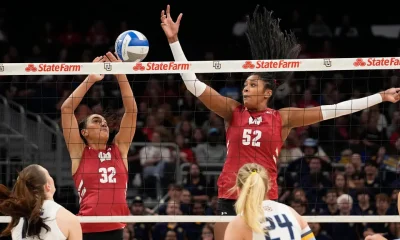
 Sports3 weeks ago
Sports3 weeks agoBadgers news: Final Four Game Thread vs. No. 1 Kentucky Wildcats
-

 Rec Sports5 days ago
Rec Sports5 days agoFive Youth Sports Trends We’re Watching in 2026
-

 Sports2 weeks ago
Sports2 weeks agoIs women’s volleyball the SEC’s next big sport? How Kentucky, Texas A&M broke through
-
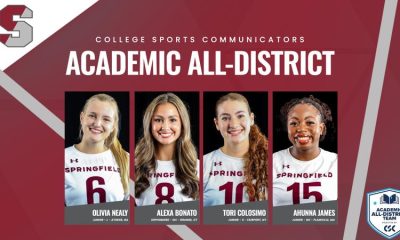
 Sports3 weeks ago
Sports3 weeks agoFour From Women’s Volleyball Named to College Sports Communicators Academic All-District Team
-
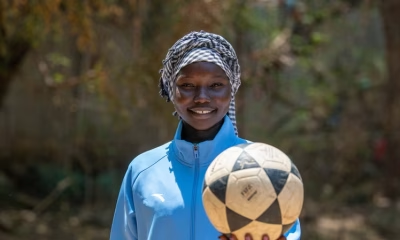
 Rec Sports3 weeks ago
Rec Sports3 weeks agoRefugee-Focused Youth Sport Initiatives : Moving for Change
-
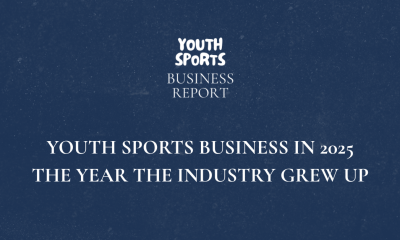
 Rec Sports3 weeks ago
Rec Sports3 weeks agoYouth Sports Business in 2025: The Year the Industry Grew Up
-
Rec Sports3 weeks ago
Inside the NWSL’s first combine: Can the league create a more robust pathway for American talent development?



































